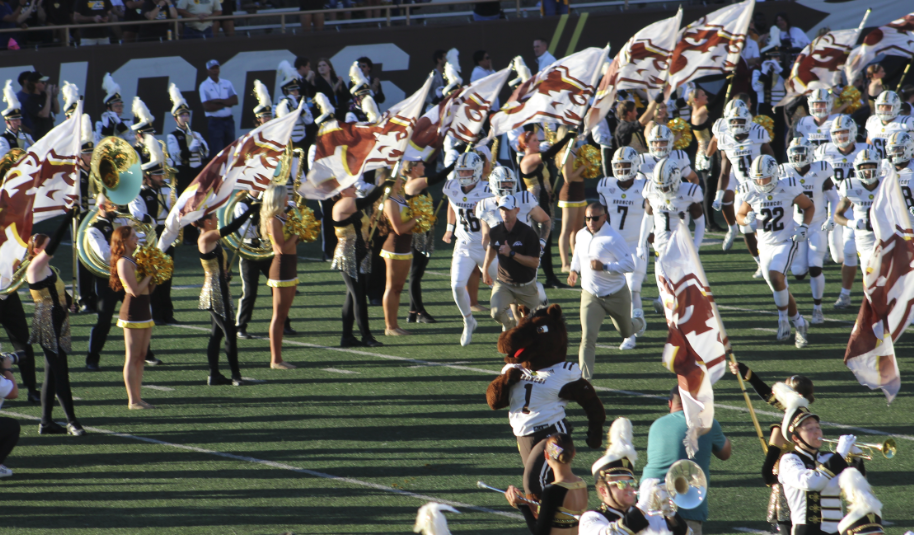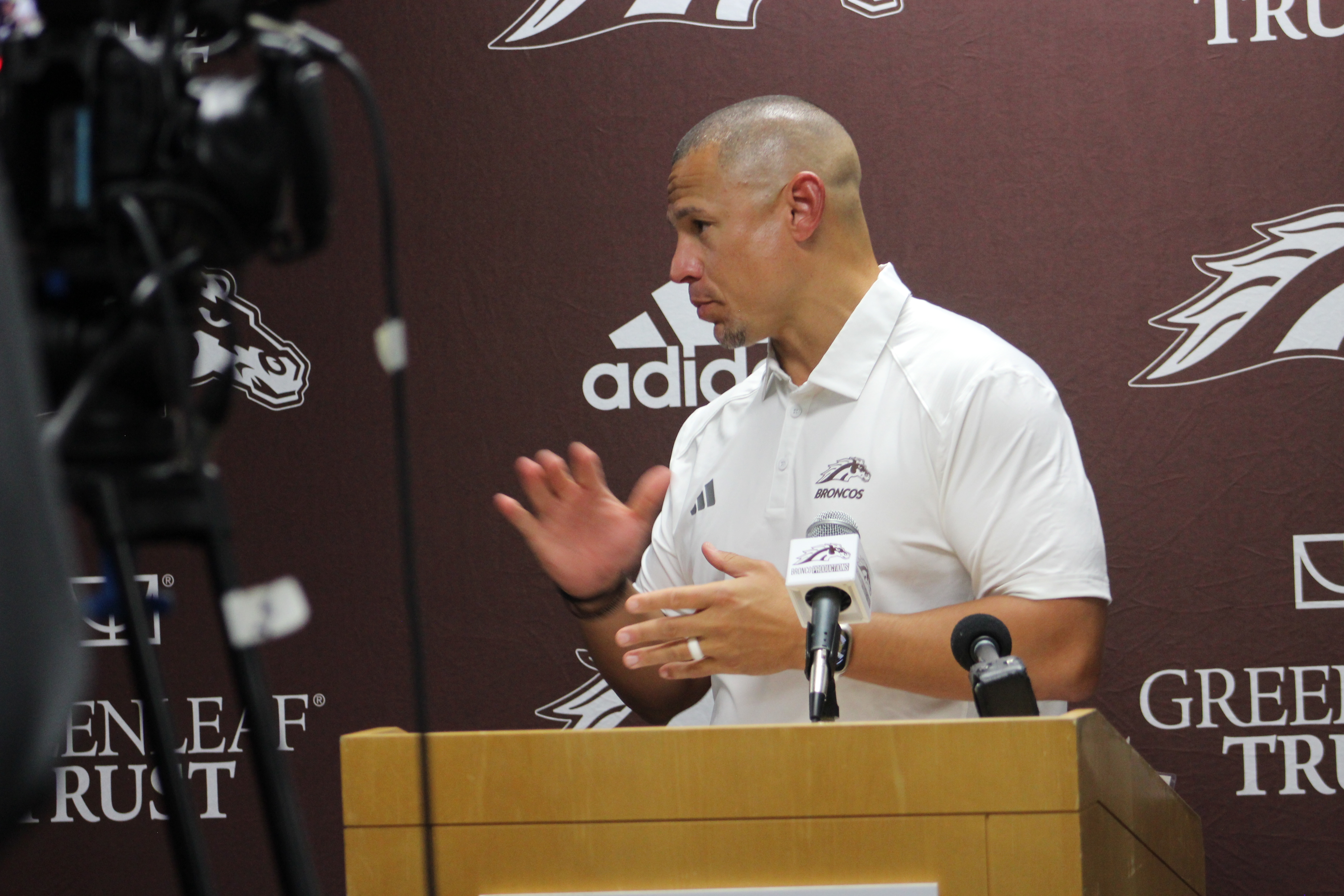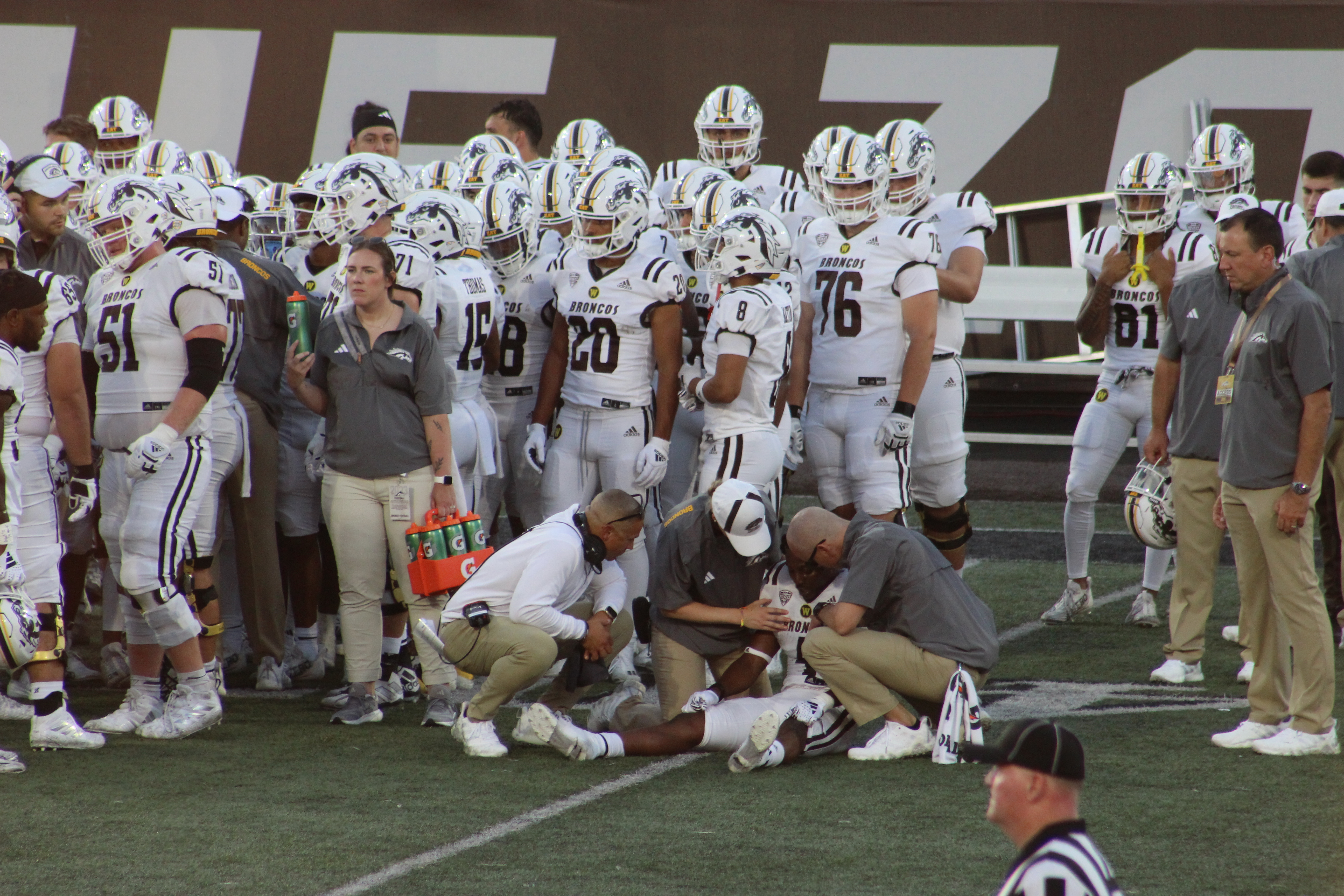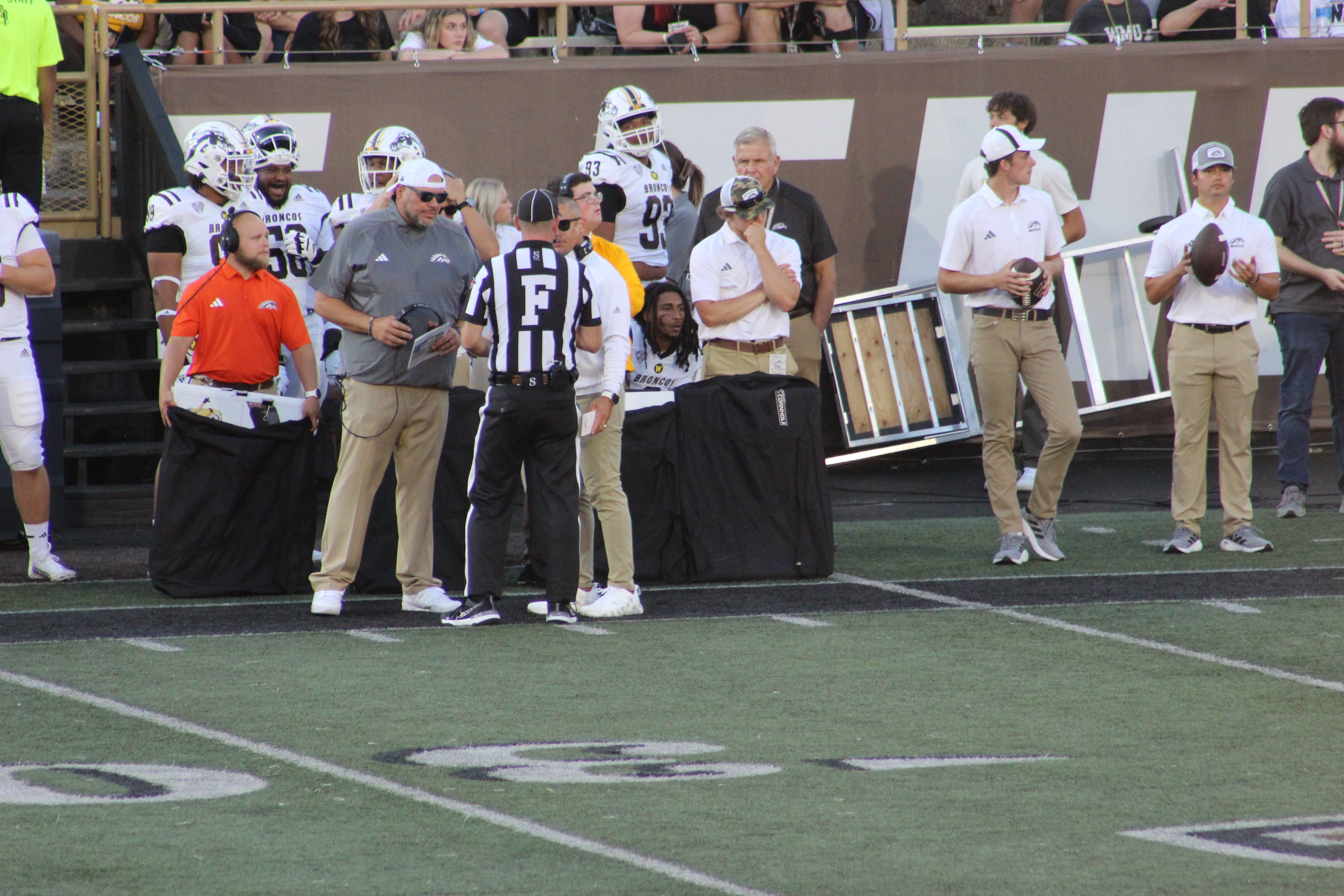
- Details
- By Levi Rickert
KALAMAZOO, Mich. — Prior to the start of play of the football game the announcer at Waldo Stadium Field told the crowd of 19,432 that Thursday night marked a new era for Western Michigan University (WMU) Bronco football. He was referring to the inaugural game for new head football coach Lance Taylor (Choctaw), who is the only NCAA Division I Native American head football coach.
The WMU Broncos did not disappoint a single fan in the stadium–or Taylor–with their dominating victory 35-17 over St. Francis (PA). The Broncos scored first and never trailed in the game. The victory was team effort with five different players scoring touchdowns each. Redshirt freshman Jalen Buckley was impressive on the ground with 30 carries rushing for 194 yards.

The WMU Football program is part of the NCAA’s Football Subdivision of Division I and is a member of the Mid-American Conference (MAC). Taylor is a tribal citizen of the MOWA Band of Choctaw Indians, which is a state recognized tribe in Alabama.
"I'm really proud of our team tonight. Great effort, toughness and discipline was on display tonight. So I'm really proud and happy because I think everybody on our football family did a great job. Not only our players, our coaches, our staff, all bought into my vision and mission really worked tirelessly. And it's not about me, it's about them. So I want to thank them for what they've done the commitment that they've given to our players and building a championship culture with the habits that we want to embody," Taylor said in a post-game press conference.
“Tonight was special in multiple ways and it’s always special to win,” Taylor said. “I’m really proud of our team tonight and the way they embodied all the things we talked about during the offseason in attacking the grass with great effort, attitude, toughness and discipline – they were all on display tonight. It feels great to be 1-0.”
Taylor was named the WMU's football head coach in December 2022. He is the the 17th head coach in WMU's football program history. He replaced Tim Lester who was fired after the WMU football team had a dismal 5-7 record last season.
He was selected to WMU's head coach after spending one season as the offensive coordinator at Louisville. Prior to that he was the running backs coach and run game coordinator for three seasons at Notre Dame. Taylor also spent five years coaching in the NFL, spending 2013, 2017 and 2018 as the wide receivers coach for the Carolina Panthers and three years with the New York Jets in quality control. He also spent three seasons as the running backs coach at Stanford.
During his career, Taylor has been mentored by some of the best head coaches in college football history, spending two seasons as a graduate assistant at his alma mater under Nick Saban. He also spent three seasons on Brian Kelly's staff at Notre Dame.
John Shagonaby, who serves as the governmental affairs officer for the Match-E-Be-Nash-She-Wish Band of Pottawatomi Indians (Gun Lake Tribe), also serves on the WMU's WMU foundation board and the Native American Affairs Council attended Thursday's season opener.

"I am very excited and proud that Coach Lance Taylor is our new head football coach. He is the only division one Native American head football coach. I look forward to supporting his vision for our football program and developing top notch young men," Shagonably said to Native News Online.
In the stands to support Taylor were members of his family, including his wife Jamie, son Jet, and daughter Jemma. his parents and a brother.
Coach Taylor confers with referee Brad Brunet (Photo/Levi Rickert)
"It was it was very special having my parents here tonight. They've been such a big influence on my life. So many opportunities wouldn't be here today without their leadership and guidance and my life you've given me sacrificing so much to give me opportunities. So I love them and appreciate them. You know it's pretty pretty, pretty cool," Taylor said at the post-game press conference.
More Stories Like This
Native News Weekly (August 25, 2024): D.C. BriefsNavajo Nation Mourns the Passing of Former Vice President Rex Lee Jim
Deb Haaland Earns Endorsement From Communications Workers of America Local 7076
University Soccer Standout Leads by Example
Two Native Americans Named to Democratic Congressional Campaign Committee's“Red to Blue” Program
Help us defend tribal sovereignty.
At Native News Online, our mission is rooted in telling the stories that strengthen sovereignty and uplift Indigenous voices — not just at year’s end, but every single day.
Because of your generosity last year, we were able to keep our reporters on the ground in tribal communities, at national gatherings and in the halls of Congress — covering the issues that matter most to Indian Country: sovereignty, culture, education, health and economic opportunity.
That support sustained us through a tough year in 2025. Now, as we look to the year ahead, we need your help right now to ensure warrior journalism remains strong — reporting that defends tribal sovereignty, amplifies Native truth, and holds power accountable.
 The stakes couldn't be higher. Your support keeps Native voices heard, Native stories told and Native sovereignty defended.
The stakes couldn't be higher. Your support keeps Native voices heard, Native stories told and Native sovereignty defended.
Stand with Warrior Journalism today.
Levi Rickert (Potawatomi), Editor & Publisher



